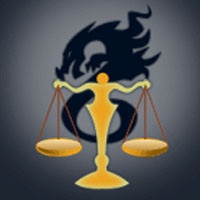Merchantville RICO Act Lawyer, New Jersey
Sponsored Law Firm
-
 x
x

Click For More Info:
-
The Law Offices of Richard L. Cooper, P.A.
848 Brickell Avenue Suite 800 Miami, FL 33131» view mapDWI/DUI, Drug Trafficking, Felony Nationally Ranked Top 40 Under 40
With Richard L. Cooper you can expect a trusted confidant who will work diligently to fully understand your case and determine a road map to help you regain control of your life.
800-756-2781
Not enough matches for Merchantville RICO Act lawyer.
Below are all Merchantville Criminal lawyers.
Mark Guralnick
Our team is led by national trial lawyer Mark S. Guralnick, who has credentials like no other lawyer. With 8 college degrees, multiple specialty certi... (more)
James R. Fridie
✓ VERIFIEDI am the founder and owner of the Fridie Law Group LLC. We are a full-service litigation firm with a concentration in Family Law, Criminal Law, Elder ... (more)
Mark Stuart Cherry
✓ VERIFIEDMark S Cherry, Attorney at Law, PC is a general practice professional law firm in Cherry Hill, NJ that, in addition to the general practice of law, as... (more)
Robert R. Simons
✓ VERIFIEDAttorney Robert R. Simons began his legal career as a prosecutor for the Camden County Prosecutor's Office. While working in the Camden County Prosecu... (more)
Julius R Hughes
✓ VERIFIEDAfter a career in addictions counseling Mr. Hughes turned his sights on the law. Mr. Hughes began his career handling personal injury claims for inju... (more)
Jeffrey F Dragon
✓ VERIFIEDJeffry Dragon is a practicing attorney in New Jersey. He attended Rutgers University School of Law where he received his J.D. He currently specializes... (more)
Allen J. Littlefield
FREE CONSULTATION
CONTACTArnold N Fishman
FREE CONSULTATION
CONTACT
 Richard L. Cooper Miami, FL
Richard L. Cooper Miami, FL AboutMiami Attorney at Law
AboutMiami Attorney at Law ServicesCriminal Defense
ServicesCriminal Defense






